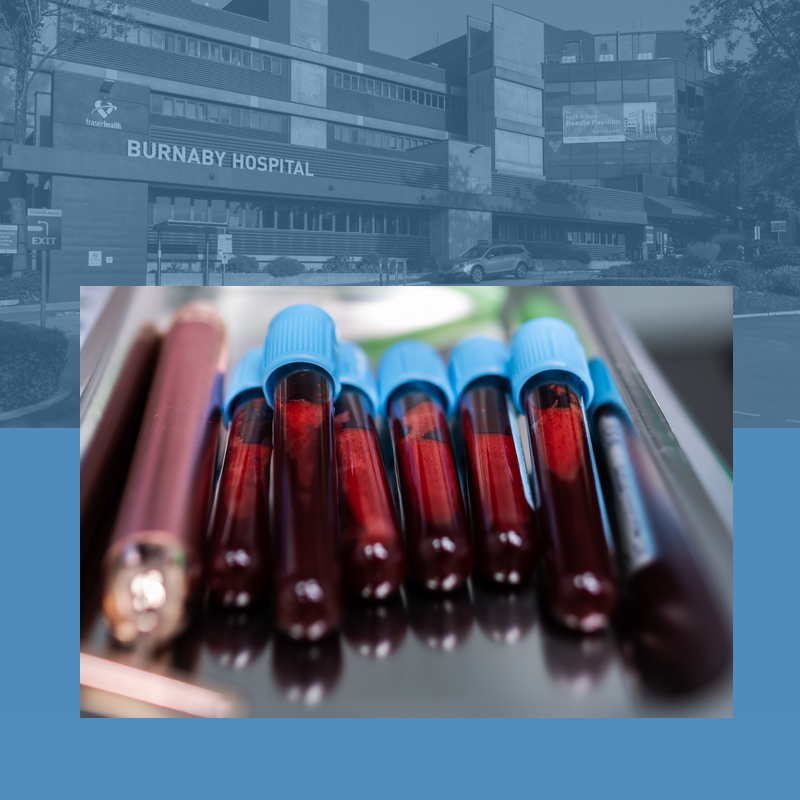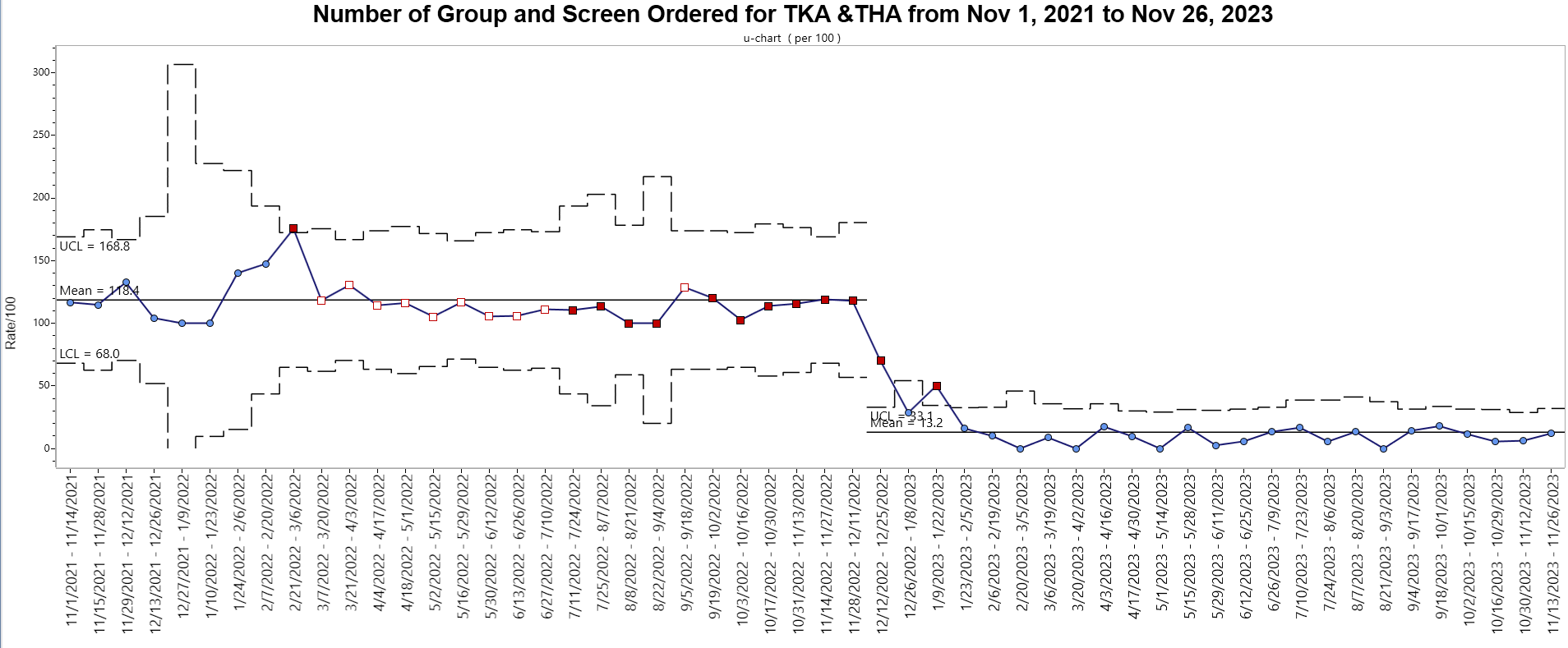
A Burnaby Hospital project collaboration of Dr Emma Harris (Anesthesiologist, Project Co-lead), Dr Andy Lo (Anesthesiologist, Project Co-lead), Dr Tim Kostamo (Orthopedic Surgeon Lead), Dr. Sarah Ostler (Hospitalist, QI Coach), Janice Eng (Project Manager)
A case for changing the 'way things have always been done'
A team of physicians at Burnaby Hospital has shown how collaborative partnerships can enhance care quality and reduce system costs by minimizing unnecessary patient blood tests.
Previously, all patients undergoing total knee and hip surgeries at Burnaby Hospital were required to have a routine group and screen (G&S) blood test prior to their surgery to ensure a compatible blood match for transfusions, if needed.
Advancements in surgical and anesthetic techniques mean that G&S is no longer advised for elective procedures in low-risk patients.
The tests can result in excessive blood draws, potential lab errors, increased staff time, and higher lab costs. Optimizing blood management not only conserves resources but also improves patient experience and quality.
In 2022 and 2023, anesthesiologists Dr Emma Harris and Dr Andy Lo co-led a “Stop the Routine” project with Orthopedic Surgeon Lead Dr Tim Kostamo, with a goal to reduce unnecessary G&S testing. Dr Sarah Ostler and Janice Eng further supported the project with coaching in quality improvement (QI) methodology.
Physician participation in the project was funded by the Burnaby Hospital Medical Staff Association and Facility Engagement – an initiative of the Specialist Services Committee, a joint collaborative committee of Doctors of BC and the Government of BC.
Engaging clinical and data support staff
The group first collaborated with pre-admission clinic staff to map out the G&S testing process and identify opportunities for workflow improvements.
Together, they developed a screening tool for the clinic. It allowed staff to identify higher-risk patients who would still require a pre-operative G&S test, while eliminating mandatory screening from the pre-admission checklist for low-risk patients.
As a key project success factor, Fraser Health provided access to Electronic Health Record (EHR) data, which supported vital evidence that reductions in G&S testing had no negative impact on care quality and would not negatively affect patient outcomes. The data gave physicians the confidence to support the changes.
Changes were communicated across the hospital through educational posters to ensure that all other affected health care providers were aware of them, and to prevent potential surgical delays.
Results: Significant reductions in testing, cost savings
The results have been significant. Between May 2022 and April 2023, the number of G&S tests performed before total knee and hip arthroplasty surgeries were significantly reduced.
A control chart illustrates a reduction in the number of group and screen orders from a rate of 118.4 to 13.2 per 100 THA/TKA, with inappropriate G&S tests virtually eliminated.
This change, sustained in the last year, creates an estimated health system cost savings of about $15,000 for every 1000 procedures performed.

| Steps to success 1: Formed a team, with physician QI coaching and mentorship 2: Engaged on process mapping the current state to understand the problem 3: Used QI methodologies to test change ideas and ramp up learning action cycles 4: Accessed and presented data to validate the change, and monitor status 5: Celebrated small wins with the team |
![]()
 |
 |
 |
